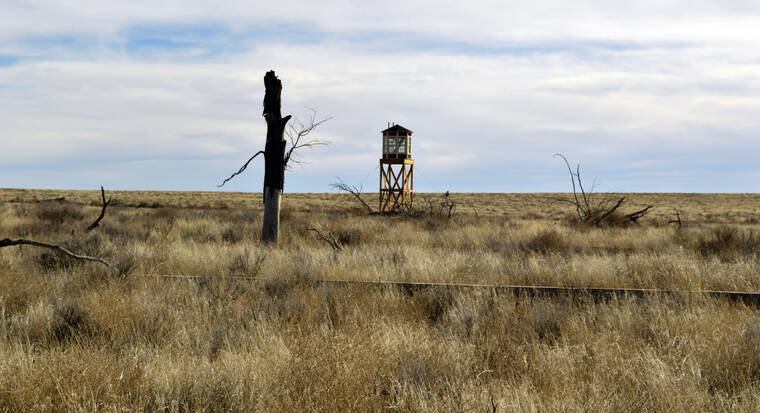DENVER — On the eve of the 80th anniversary of the forced internment of 120,000 Japanese Americans at the onset of World War II, Republican U.S. Sen. Mike Lee of Utah is getting backlash for holding up the creation of a national historic site at a former internment camp in rural Colorado.
U.S. Sen. Michael Bennet, a Colorado Democrat, says he has the support of 99 of the chamber’s 100 senators to pass the Amache National Historic Site Act, which would make the remote southeastern Colorado landmark a national historic site eligible for additional preservation assistance.
But his bill, co-sponsored by Colorado Democratic Sen. John Hickenlooper, failed to pass by unanimous consent last week due to a lone objection from Lee, who opposes adding new federal lands without adequate funding and in the past has advocated for “swaps” to prevent expanding federal land ownership.
“Senator Lee does not object to this specific historical site. He does object to any increase in the total amount of land owned by the federal government as the federal government fails to adequately care for the land already in its vast holdings,” Lee’s spokesman, Lee Lonsberry, told The Associated Press.
A similar House bill, sponsored by Colorado Republican Rep. Ken Buck and Democratic Rep. Joe Neguse, swiftly passed last year, and Bennet’s Senate companion may still advance for consideration.
The dispute comes amid a broader reckoning about race in U.S. history as Japanese Americans strive to spread awareness about the gross injustices committed by the U.S. government against their community during World War II.
The Amache site is less than one square mile (2.4 square kilometers), Bennett’s office and the Prowers County Assessor said. It contains remnants of barracks, latrines, mess halls, military police structures and a cemetery.
Lee has been one of the Republican Party’s most vocal opponents of the expansive power that federal agencies have to manage public lands in Western states.
He supported the Trump administration’s 2017 decision to shrink the size of Bears Ears and Grand Staircase-Escalante, two national monuments in Utah. And last year, he opposed the Biden administration’s decision to restore Bears Ears’ original borders. In a 2018 speech in Utah, where about two-thirds of land is managed by federal agencies, he said his long-term goal to transfer federal lands to state control.
Camp Amache is owned by the town of Granada and already listed on the National Register of Historic Places. Its current designation qualifies it for preservation funds, but designating it as a National Historic Site would make available additional federal funds through the National Park Service.
Calling the Japanese American internment one of “the most disgraceful chapters in our nation’s history” fed by “racist fear,” Bennet said in a floor speech Feb. 3 the bill intended to honor people “who never gave up on the United States of American even as it was interning them on their own soil.”
Japanese Americans were held in 10 camps in California, Arizona, Wyoming, Utah, Arkansas and Colorado, expelled from their homes near the West Coast under an executive order by President Franklin Roosevelt issued on Feb. 19, 1942. More than 7,000 people were interned at Amache — the camp’s unofficial name, after a Cheyenne chief’s daughter — between 1942 and 1945.



